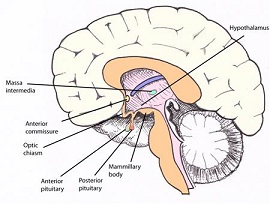
Brain plasticity can impact on behaviour.
Neuroplasticity refers to the fact that our nervous system is not a static network of interconnected elements. In fact, the nervous system is plastic. By this, we do not mean it is made of plastic, but that it is a living organ that changes and grows continually in response to our environment and genetics.
Our immediate environment can influence the development of the nervous system. If we do not activate our neurons and synapses through experience, they do not normally survive. This is why it is so important that babies are stimulated from birth to ensure that their synapses and neurons adapt and form.
So neuroplasticity is the brain’s ability to reorganise itself by forming new neural connections throughout the lifetime of the individual. It allows neurons in the brain to compensate for disease or injury and adjust their activities in response to changes in the environment or new situations.
Brain reorganisation takes place by mechanisms such as axonal sprouting, where undamaged axons grow new nerve endings to reconnect neurons whose links are severed or injured. Undamaged axons will also sprout nerve endings and connect to undamaged cells to form new neural pathways.
Learn More - Study Biopsychology -click here